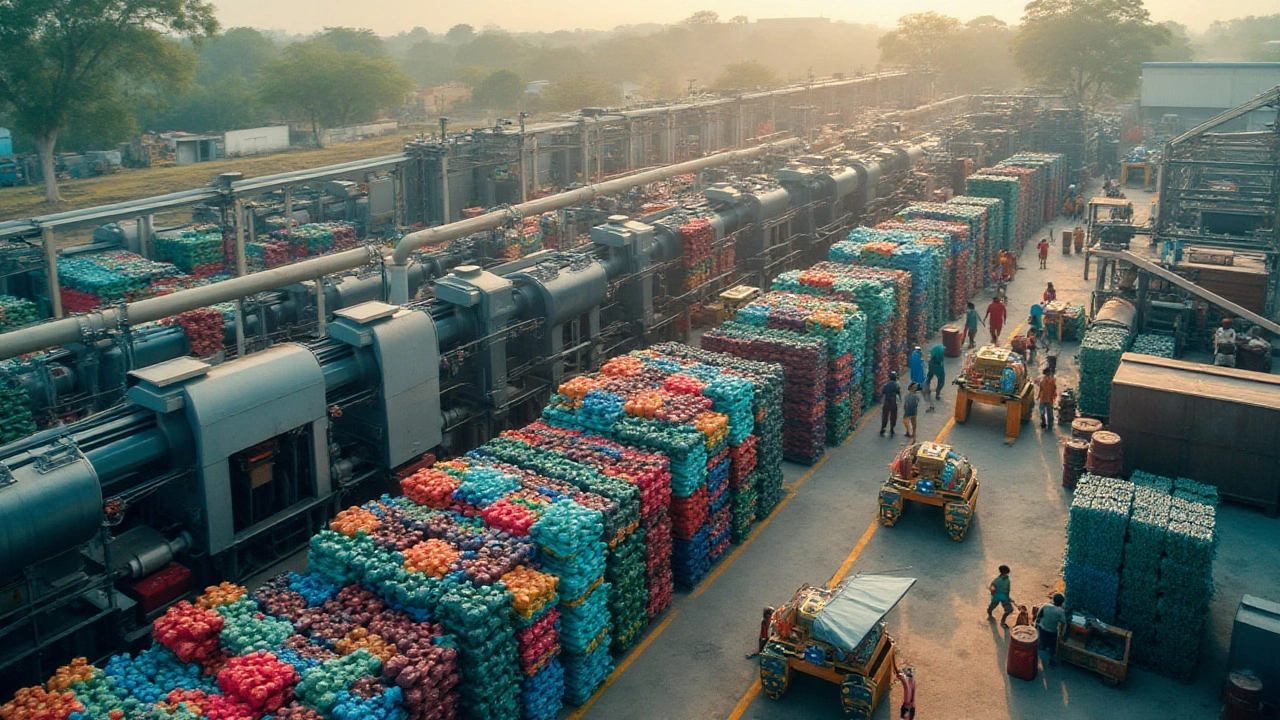Polymer Companies: Who’s Making the Materials You Use Every Day?
Ever wonder where the plastic bottle you drink from or the polymer coating on your phone came from? That’s the work of polymer companies – firms that turn raw chemicals into the versatile plastics and rubbers we rely on. In simple terms, they buy basic chemicals, run them through reactors, and push out finished polymers that get molded into everything from toys to car parts.
India has a bustling polymer sector, and many of these firms are expanding fast because manufacturers need lighter, stronger, and more cost‑effective materials. If you’re a designer, a supplier, or just curious about where your everyday items start, knowing the key players and what they offer can save you time and money.
Major Players in the Polymer Industry
Some of the biggest names you’ll hear about include Reliance Industries, which runs huge petrochemical complexes that produce polyethylene and polypropylene in massive volumes. Another heavyweight is Indian Oil Corporation, whose polymer division supplies a range of high‑density plastics used in packaging and construction.
Don’t forget about specialty firms like Synthene Materials and LCMS, which focus on engineered polymers for automotive and aerospace applications. These companies often invest in R&D to create polymers that resist high temperatures or have extra strength, helping manufacturers meet stricter safety standards.
Even smaller, region‑focused companies play a role. For example, a local polymer maker in Gujarat may specialize in PVC sheets for flooring, while a Tamil Nadu firm might produce PVC pipes for water supply. These niche producers often provide faster delivery and more flexible order sizes, which is handy for small‑scale projects.
Future Trends and Sustainable Practices
What’s next for polymer companies? Sustainability is the buzzword driving change. More firms are adding bio‑based polymers to their line‑ups – think plastics made from sugarcane or corn starch that break down quicker than traditional plastics. Companies like BASF India are already rolling out biodegradable options for packaging.
Recycling is another hot area. Some polymer producers are setting up closed‑loop systems where scrap plastic from factories is collected, cleaned, and turned back into raw material. This reduces waste and cuts down on the need for fresh petroleum feedstock.
Technology is also shaking things up. Advanced catalysts and AI‑driven process controls are making polymer production more efficient, which lowers energy use and reduces emissions. If you’re looking to partner with a polymer supplier, ask about their use of these new tools – it can mean better product quality and a smaller carbon footprint.
Finally, market demand is shifting toward lighter, high‑performance materials for electric vehicles, renewable energy devices, and medical equipment. Polymer companies that can deliver lightweight composites or high‑purity medical‑grade plastics are likely to see strong growth.
Bottom line: polymer companies are the silent engines behind countless products. Whether you need bulk polyethylene for packaging or a specialty polymer for a high‑tech gadget, understanding the landscape helps you pick the right partner and stay ahead of industry trends.
